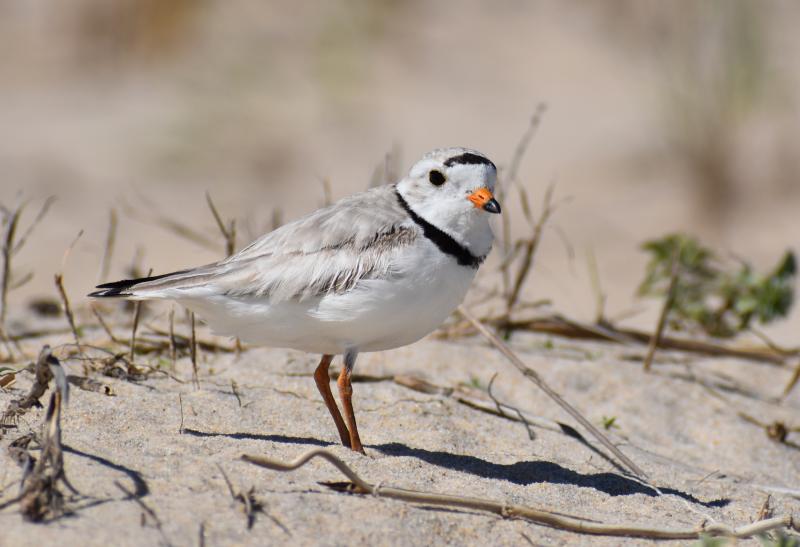Beach-nesting piping plovers experienced modest nesting success in Delaware during 2022, the Department of Natural Resources and Environmental Control announced Jan. 17.
Seven pairs of piping plovers were recorded nesting at The Point in Cape Henlopen State Park, and 17 additional nesting pairs were documented at Fowler Beach on Prime Hook National Wildlife Refuge, for a total of 24 nesting pairs, the same as 2021. Piping plovers produced more fledglings in 2022 than in 2021, successfully raising 34 chicks to their flying age (25 days old). Nesting occurred later than normal, and nest and chick loss were high following several spring storms and higher-than-average predation at Fowler Beach.
Delaware documented state-record piping plover nest productivity from 2018 through 2020, but productivity was poor in 2021. The U.S. Fish and Wildlife Service established a goal of 1.5 fledglings per nesting pair in 1996 as part of the piping plover recovery plan, and Delaware exceeded that goal 2018-20. In 2022, DNREC’s Division of Fish and Wildlife recorded 34 fledglings, for a productivity rate of 1.4 fledglings per nesting pair, substantially higher than the 0.8 mark reached in 2021.
Delaware’s piping plover recovery efforts involve partnerships among DNREC’s Division of Fish and Wildlife and Division of Parks and Recreation, the U.S. Fish and Wildlife Service, and the U.S. Department of Agriculture Wildlife Services. Partners are working together to better understand the drivers of population change and behavior, including a new study that investigates piping plover chick and fledgling movement. Trained biologists fit each plover with a unique combination of plastic leg bands, allowing individual birds to be identified using a spotting scope or binoculars. More information about piping plovers is available at de.gov/pipingplovers.
In other 2022 beach-nesting bird species updates, two pairs of American oystercatchers nested at The Point in Cape Henlopen State Park. Although this marked the first time in five years that two American oystercatcher nests successfully hatched at Cape Henlopen State Park, the chicks did not fledge due to suspected nest and chick loss from predation. Least tern counts continued to trend lower than prior years, with the only documented nest found at Cape Henlopen State Park failing to hatch.













































